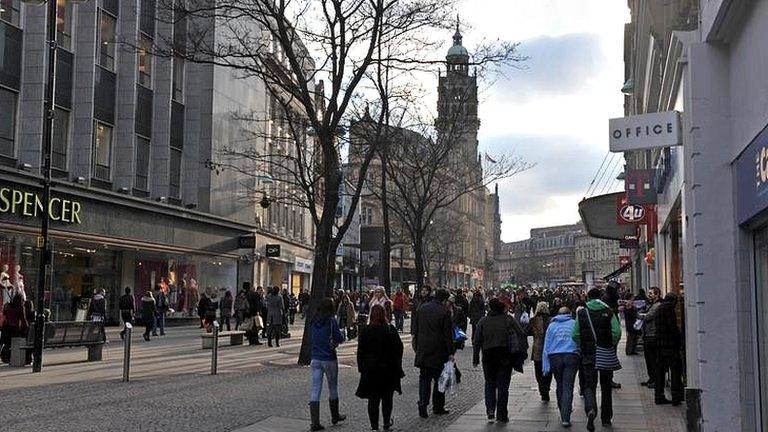English devolution - the options
- Published
- comments
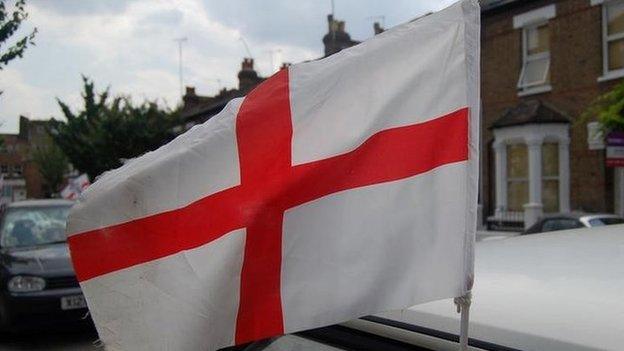
Is it time devolution spread to England?
The fall-out from the Scottish referendum has ignited a debate on English devolution. But how might it happen?
Forms of devolution
Firstly - what are the options?
1) English Parliament - Scotland has one, and Northern Ireland and Wales has assemblies, so isn't it time England had a chamber? The UK parliament could be reduced in size with responsibilities restricted perhaps to foreign policy and defence. The English Parliament would deal with the rest, possibly under an English First Minister. Critics question the need for another institution, and Labour politicians are concerned it could become dominated by southern Conservatives.
Chances of it happening: 3 out of 10 - with none of the three main Westminster parties backing the idea, unlikely.
2) English votes for English laws inside the Westminster parliament - The Prime Minister began the push for this following the Scottish referendum. The Conservatives argue that procedures could be changed within the existing UK parliament to ensure English-only matters are decided by English MPs. William Hague is now chairing a committee focusing on the issue. Labour has refused to co-operate, and while the Liberal Democrats want change, they're concerned the Conservatives are intent on political advantage.
Chances of it happening: 5 out of 10 - Progress on this is now unlikely before the general election. That may decide its fate.
3) Regional assemblies - This was John Prescott's idea - right up to the moment North East voters overwhelmingly rejected the idea in a 2004 referendum. Some think it should be revived - but in a beefed-up form. A new North East party has formed to campaign for regional government, and some Labour MPs - and Lord Prescott - favour an assembly covering the whole of the north with the same powers as Scotland. The party leadership, though, sees the idea as dead in the water.
Chances of it happening: 2 out of 10 - lack of mainstream political support means assemblies remain so 2004.
4) Elected "metro" mayors - There are already mayors running councils like Middlesbrough and Doncaster, but the "metro variety" would be modelled on London. Greater Manchester has decided to have one from 2017. Powers would include transport, policing and housing. Fans say it's been a success in London, and would provide cities with hard to ignore, powerful figures. But many city voters did reject mayors in 2012, and critics say it would give one person too much power.
Chances of it happening: 8 out of 10 - Cities may be offered powers if they voluntarily agree to have them. The Conservatives are very keen, but will voters rebel against their imposition?
5) Combined authorities of councils - These already exist in Greater Manchester, West Yorkshire and the North East. Merseyside and Teesside will follow. Powers would pass to groups of councils working together. Many already have been given freedom to borrow more, and run local transport. The government seems keen on mayors being in charge, but some may resist that. Although they may work in conurbations, for smaller towns and cities or rural areas.
Chances of it happening: 9 out of 10 - The Conservatives, Labour and the Lib Dems are all keen. The Chancellor will make further announcements in the autumn statement.
6) Devolution on demand - Instead of a one-size fits all solution, local areas decide for themselves what form of devolution they want, and what powers they'd like. Different areas would progress at different speeds to different solutions. It could be chaotic but it may also allow devolution of powers to both conurbations and county councils. To avoid governments blocking devolution, powers would have to be handed over unless ministers could say why they shouldn't.
Chances of it happening: 7 out of 10 - The Lib Dems are keen, and it might put councils rather than MPs in the driving seat. It could though lead to confusion and a patchwork pattern of devolution.
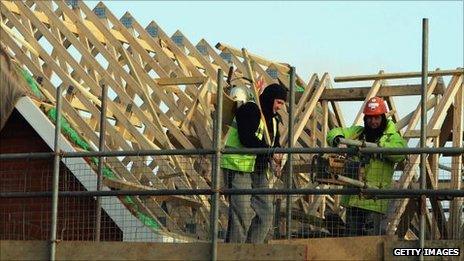
Powers over housing could be among those devolved
What powers?
So what powers might be devolved in England?
Racing certainties:
Transport - Combined authorities are already getting more control over their local networks. The North East is planning to take back control of buses. Five northern cities are forming a transport authority that could award regional rail franchises.
Skills - Authorities could be handed responsibility for training and adult skills. They may oversee programmes to get people back to work.
Housing - Areas could be given more control over the funding and powers needed to build homes.
Economic development - There has been some devolution to local enterprise partnerships - boards of business leaders and politicians - and more responsibility could follow. But there are precious few resources to pass on. We won't be seeing the revival of Regional Development Agencies.
Possibles:
Wages - Areas could be given the power to vary the minimum wage.
Policing - This is currently overseen by Police and Crime Commissioners, but if they were scrapped, power could be handed to combined authorities or mayors - although there could be a problem matching up authority and police boundaries.
Justice - Less likely, but authorities could oversee local courts and some prisons.
Energy - Some cities are pushing for the ability to become power suppliers, and develop new forms of generating energy.
Taxation - Control of VAT, income or corporation tax is unlikely to be devolved, but the power to vary others - business rates, air passenger duty - might be. New local taxes could be allowed.
Long shots:
Welfare - Areas could be handed welfare budgets to spend and could vary benefit rates. It might be a change too far for government.
Education - Councils already have less control over schools than they did decades ago. Westminster is unlikely to hand on responsibility as it has in Scotland.
Health - Whitehall is likely to remain in control over a vital policy area, and will resist localising NHS policy and funding decisions.
No way:
Foreign policy and defence: Forget it - that would mean the break-up of the UK.
- Published31 October 2014
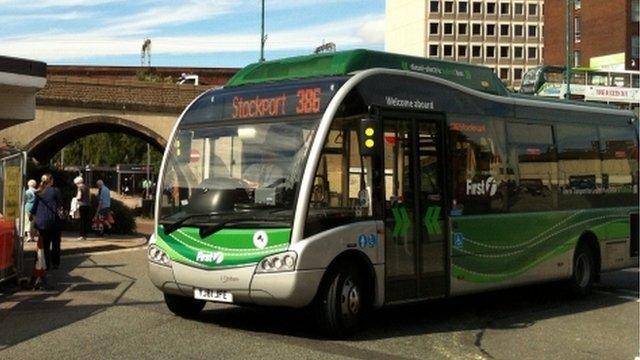
- Published14 October 2014
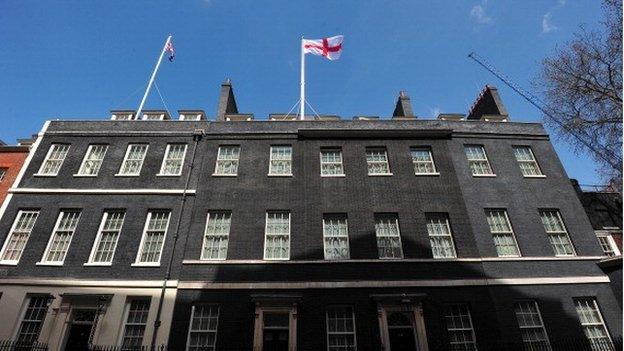
- Published12 September 2014
